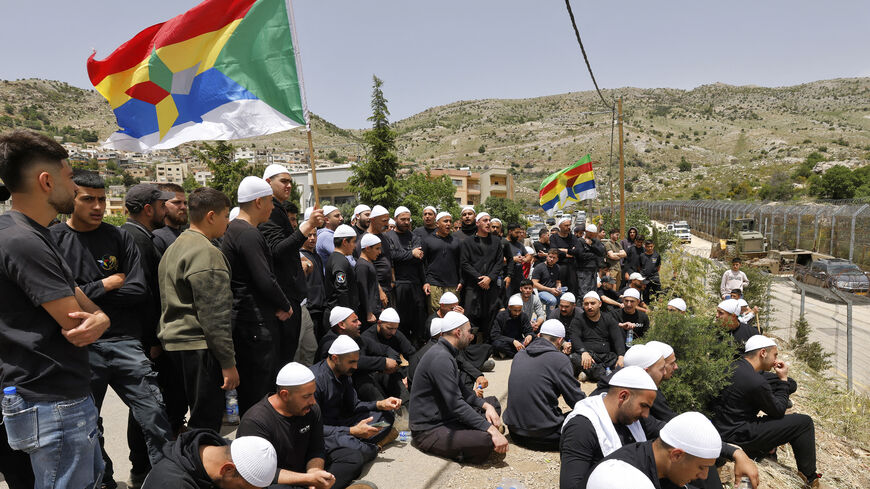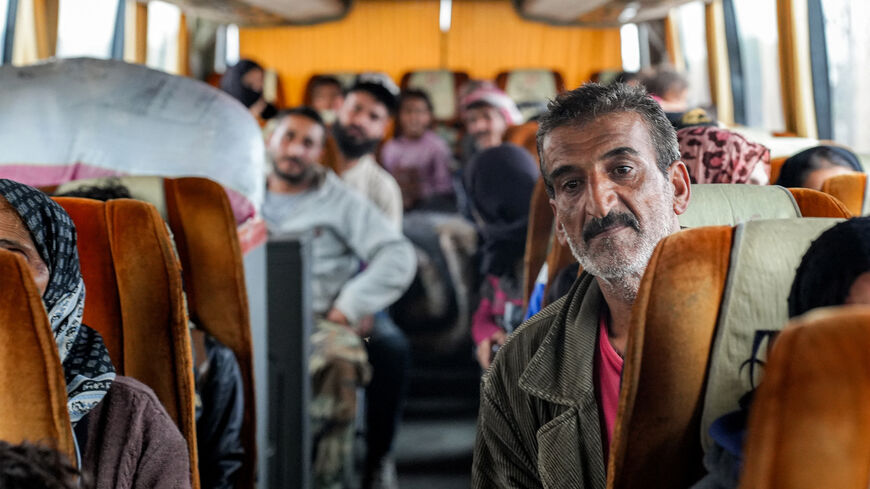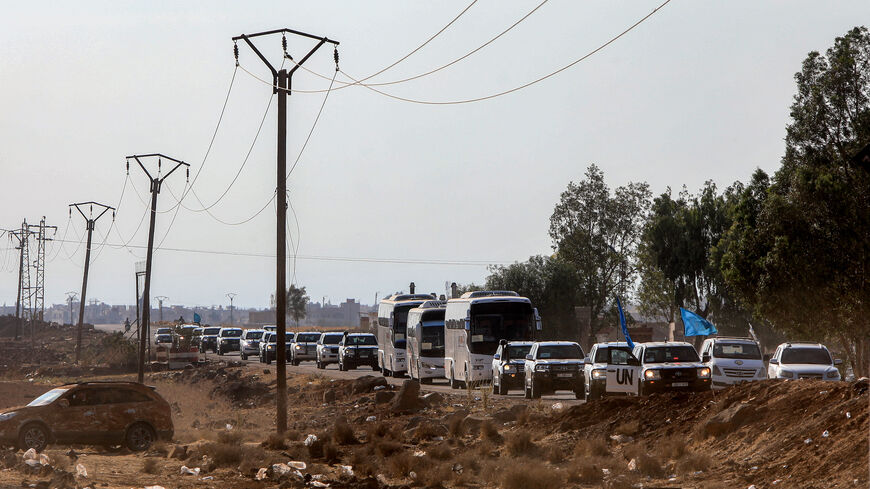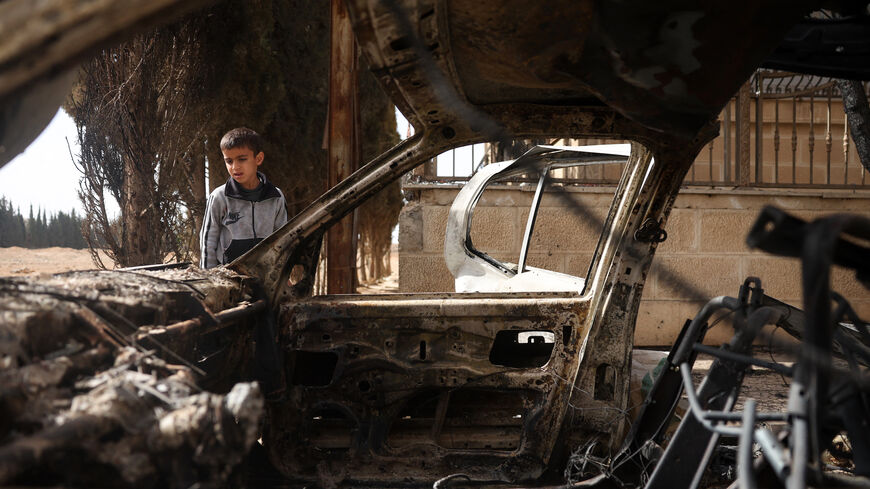Syria announces ceasefire in Druze city of Suwayda: What to know
The ceasefire followed deadly clashes between the Druze of Suwayda and Bedouin tribes that left over 100 people dead.
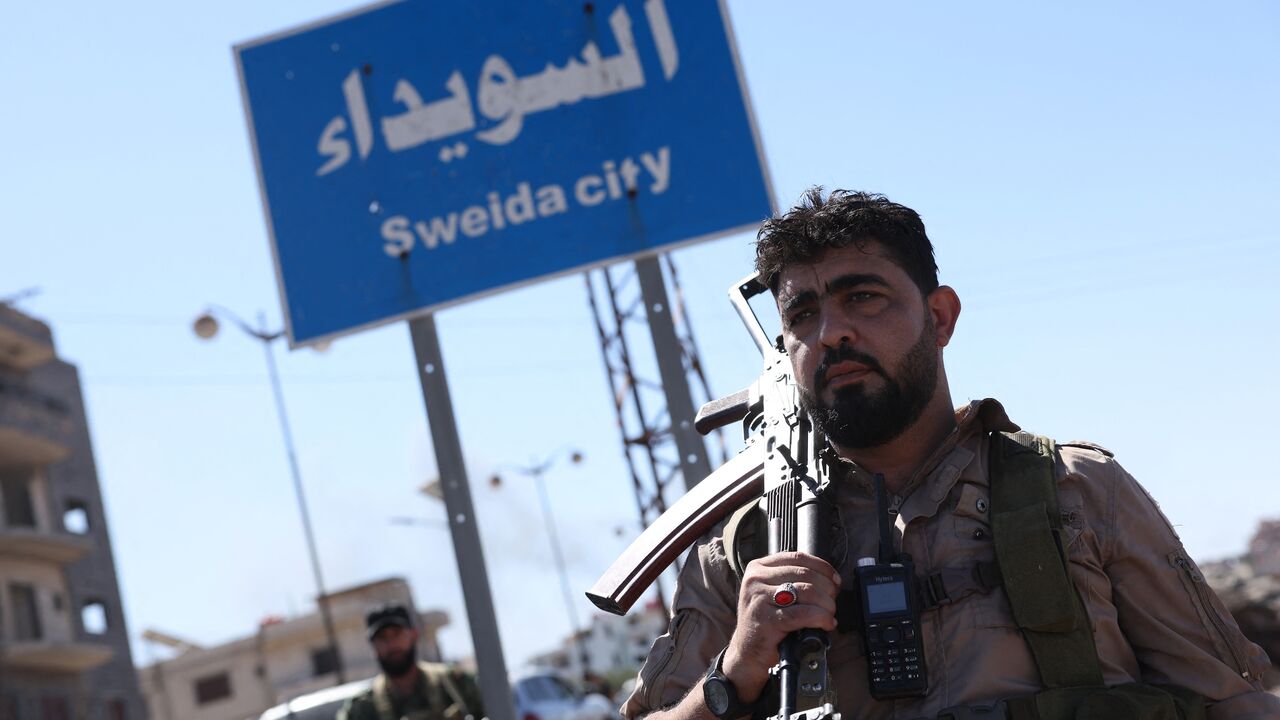
The Syrian government announced a ceasefire on Tuesday in the southern province of Suwayda, two days after deadly clashes between the local Druze minority and Bedouin clans that left over 100 people dead.
What happened: Syrian Defense Minister Murhaf Abu Qasra announced a “complete” ceasefire in a statement on X.
“To all units operating within the city of Suwayda, we announce a complete ceasefire after an agreement was reached with the city's notables and dignitaries,” he said.
Abu Qasra announced that military police units would be deployed to Suwayda to monitor the situation and hold violators accountable.
“We will respond only to direct attacks and to sources of fire from outlaw groups,” he said, adding that military police would hand over neighborhoods in Suwayda city to the internal security forces once clearance operations are completed.
Syria’s official news outlet, SANA, later reported that the Syrian army began withdrawing heavy equipment from Suwayda ahead of turning control over to internal security forces.
قوات الجيش العربي السوري تبدأ بسحب الآليات الثقيلة من السويداء إلى دمشق، تمهيداً لتسليم أحياء المدينة لقوى الأمن الداخلي.#سوريا#السويداء #سانا pic.twitter.com/wRF5vphun4
— الوكالة العربية السورية للأنباء - سانا (@Sana__gov) July 15, 2025
Background: Clashes broke out on Sunday between members of the Druze community and Sunni Bedouin clans in the al-Maqous neighborhood of Suwayda city, in response to a string of tit-for-tat kidnappings from both groups. The violence had spread across the eponymous province by Monday, and Syrian government forces deployed to the affected areas.
The UK-based Syrian Observatory for Human Rights said on Tuesday that 116 people have been killed in the violence. There were 64 people from Suwayda among the dead, including two women and two children. The rest of the dead were from Bedouin clans and state security forces, according to the war monitor.
Druze community leadership put out a statement on Tuesday saying they “welcome” the deployment of state security forces to Suwayda.
“We call on all armed factions in As-Suwayda Governorate to cooperate with the Ministry of Interior forces, not resist their entry, and to surrender their weapons to the Ministry of Interior,” read the statement.
However, Druze spiritual leader Hikmat al-Hijri later distanced himself from the statement, saying it was released under “pressure from international states” and that “its details are completely from Damascus.” He accused the Syrian government of violating the ceasefire and called on Druze to resist.
“We are being subject to a total war of extermination,” said Hijri, adding that all Druze should “confront this barbaric campaign with all means available.”
Meanwhile, Israel’s Prime Minister Benjamin Netanyahu and Defense Minister Israel Katz said in a statement on Tuesday that they instructed the military to strike Syrian government forces that entered the Suwayda area, saying the deployment was done in “contravention of the demilitarization policy” to prevent threats to Israel from southern Syria.
"Israel is committed to preventing harm being inflicted on the Druze in Syria, owing to the deep covenant of blood with our Druze citizens in Israel and their historical and familial link to the Druze in Syria,” they added.
The Israeli military said they struck Syrian army vehicles in Suwayda.
Why it matters: Syria has struggled with numerous bouts of sectarian violence since former President Bashar al-Assad was overthrown in a rebellion led by former members of Hayat Tahrir al-Sham (HTS) last December. HTS is an Islamist militant group that was formerly affiliated with Al-Qaeda. The US removed HTS from its list of designated terrorist organizations this month.
Episodes of sectarian violence have disrupted the transitional period in Syria. A church in Damascus was attacked by suicide bombers last month. In late April, clashes broke out between Druze and Sunnis in the Damascus suburb of Jaramana after a video circulated purportedly showing a Druze man insulting the Prophet Muhammad.
In March, clashes between pro-Assad militias and the new government’s forces triggered revenge killings targeting the Alawite community in the coastal Latakia and Tartous provinces. A Reuters investigation published in late June concluded that nearly 1,500 Alawites were killed in the massacres and that at least a dozen factions now under the government’s command participated in the massacres.
Assad and his family are Alawites, and members of the religious minority community were long associated with his regime, though Alawite views on the deposed leader are mixed.
Syrian President Ahmed al-Sharaa, who led HTS during the civil war, has called for unity and denounced sectarianism since taking power and ordered an investigation into the March killings. He granted the committee investigating the matter a three-month extension in April.
Beatrice Farhat contributed to this report.

